I approached Ratopia with excitement—and a bit of doubt. Cassel Games has taken a bold step by mixing survival strategy with city building. The promise of a vast world to explore and a deep economy to learn is thrilling. Yet Ratopia’s mix of clever ideas and rough edges leaves me torn between admiration and annoyance.
Overall Impression
Ratopia’s biggest strength is its ambition. Managing a colony of “ratizens,” where every choice affects their health and happiness, feels fresh and fun. The game’s playful rodent theme is a welcome break from typical human dramas. Still, big ideas don’t always mean smooth gameplay.
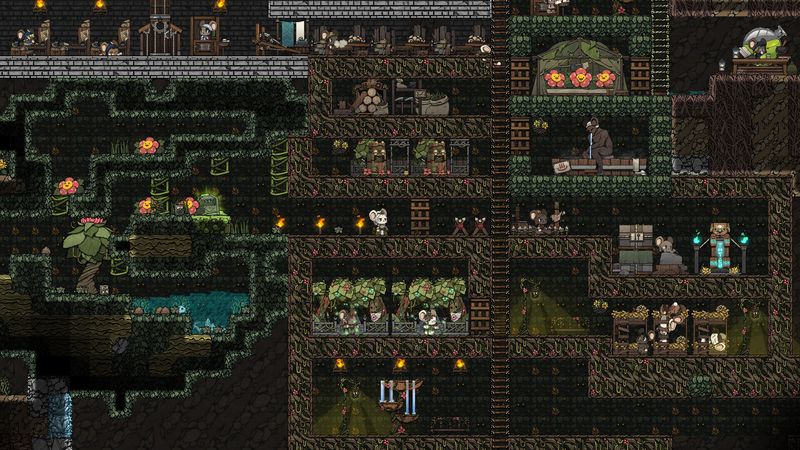
Gameplay Mechanics
At its heart, Ratopia asks you to balance basic survival with thoughtful city design. It reminds me of classics like RimWorld or Oxygen Not Included, but with its own ratty twist. Gathering resources and setting citizen rules work together, so careful planning and brave gambles both pay off. I loved the rush when a clever policy led to a thriving colony. But those wins can be spoiled by a clumsy interface.
Many players—and I—struggle with the console-style controls. Without proper mouse support, navigating menus feels harder than it should be. It’s frustrating to plan a battle at midnight, only to have the UI slow you down. For a game this creative, it needs modern, smooth controls. Instead, Ratopia sometimes feels stuck in the past.
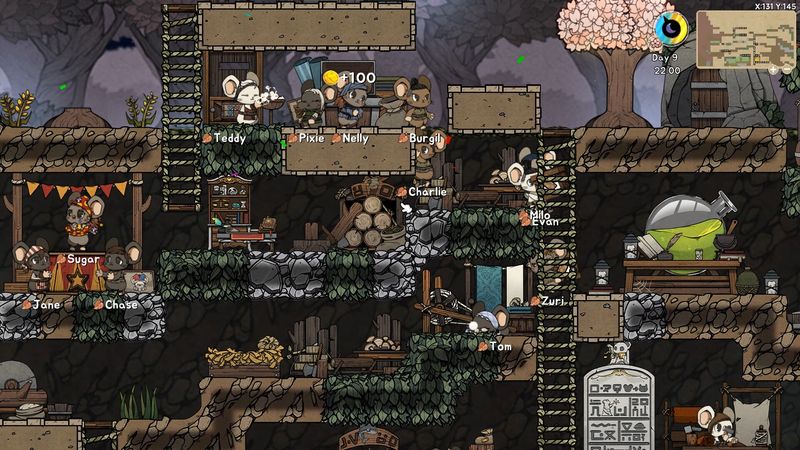
Story and Characters
Now, let’s address the narrative, where Ratopia cleverly masks its city-building backbone behind a thin veneer of lore. The world-building here is serviceable, if unremarkable. Cassel Games has introduced a backstory that attempts to humanize—or rather, “rat-ify”—the experience, giving each ratizen a role that contributes to the broader narrative of survival and growth. That said, the characters often feel like archetypes; the figurehead of the city and the disillusioned advisor pop up without much depth. They certainly serve their gameplay function, yet rarely deliver a narrative punch akin to classic RPG protagonists.
I suspect that for many players, the appeal lies in managing their adorable yet oddly contentious society, rather than in a story that will live up to the grand epic of typical fantasy sagas. In a world where every citizen is a rodent with a revised backstory, I found that my focus naturally shifted to the strategic aspects of governance rather than to any epic dialogue. And so, while the lore does its job, it never quite becomes central enough to warrant repeated engagement outside of its functional role.
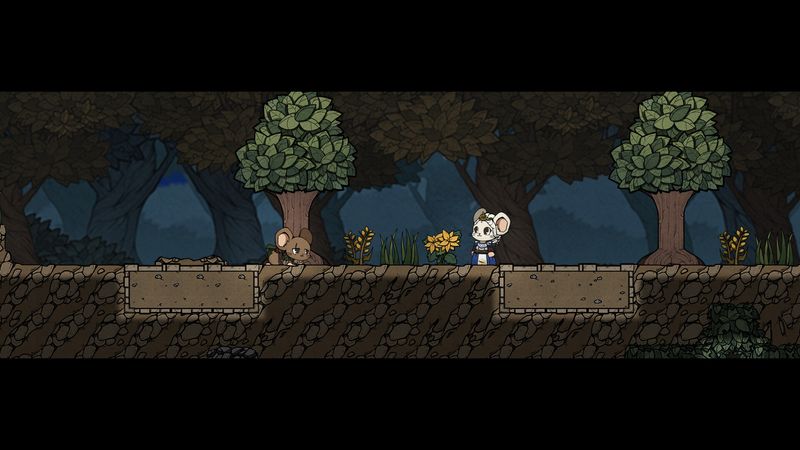
Visuals and Graphics
Ratopia’s visual design is where the game truly narrows the gap between its ambitions and its execution. The art style is undeniably charming with an artful blend of cuteness and gritty survivability. The environments are richly rendered—a vibrant portrayal of a world where every shadow might hide a lurking threat, and every sunlit corner bursts with ratific whimsy. The textures and dynamic lighting contribute to an overall atmosphere both inviting and mysterious, striking a balance rarely seen in modern city builders.
Yet, the beauty is somewhat offset by the clunky UI design. The icons and menus, which suffer from the same constraints as the control scheme, sometimes detract from the immersive qualities of the visuals. When I was lost in a detailed sector of my burgeoning rat metropolis, a more intuitive interface could have easily enhanced the experience, ensuring that the artistry wasn’t undermined by frustration at every screen click.
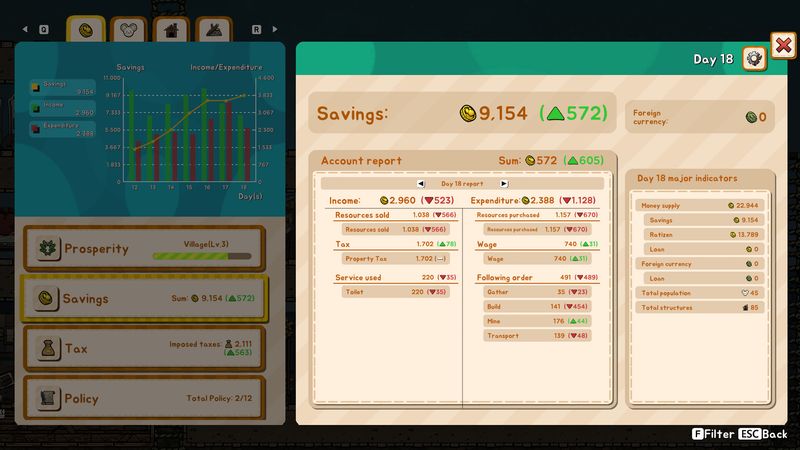
Sound and Music
Much like many well-posted, well-received indie games, Ratopia benefits from a carefully curated soundtrack. The music is both ambient and engaging, subtly reacting to critical gameplay moments without overwhelming the senses. The sound effects—whether a heartening chitter of burgeoning prosperity or the grim note heralding disaster—amplify the atmosphere and complement the overall tone remarkably well.
However, voice acting remains a minor blemish in what is otherwise a competent auditory experience. One could argue that in a game so focused on its strategic and simulation aspects, more expressive vocal performances might have deepened the connection to its characters. Instead, the narrative delivery is lean, relying more on text prompts than vocal exposition. This minimalistic approach is by design but does leave something to be desired for those seeking a richer, more nuanced auditory landscape.
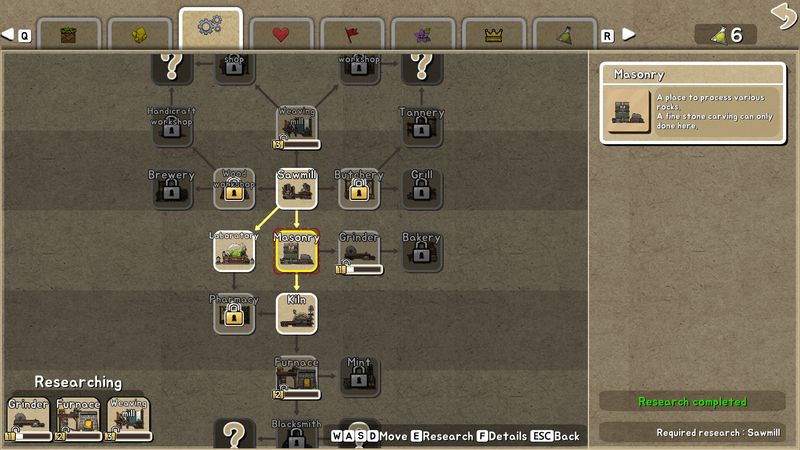
Difficulty and Replayability
For those who revel in a challenge, Ratopia presents a dual nature. On easier difficulties, the game offers a relaxed, almost meditative pace that encourages creative city planning. However, if you enjoy learning by dying—a sentiment echoed passionately by one dedicated player—hard mode promises endless opportunities to optimize and perfect your rat colony. The game achieves a commendable level of replayability, bolstered by frequent updates that generate more content than a few sleepless nights might suggest.
The duality of difficulty modes permits both casual play and a challenging, methodical grind. My personal leanings favor a steady challenge, where every decision carries weight. In this department, Ratopia excels, inviting players to experiment with strategic depth while drawing them back through its evolving mechanics. Yet, for those less tolerant of recurring setbacks, the steep difficulty curve on higher settings might feel more punitive than rewarding.
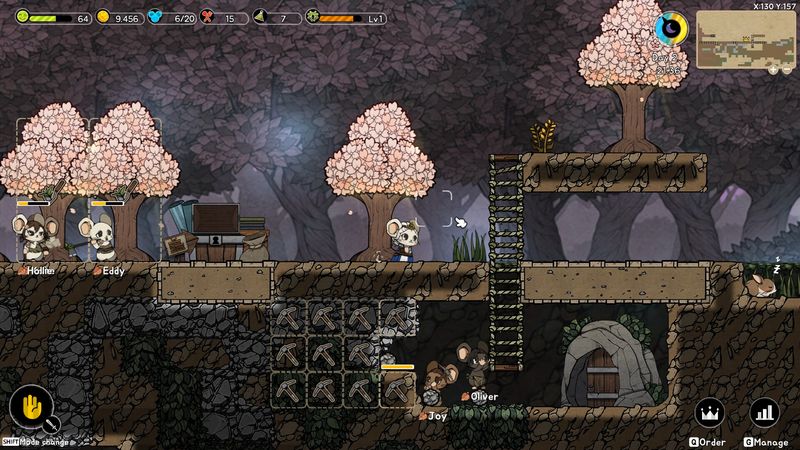
Final Thoughts
In summary, Ratopia emerges as a title that is both endearingly creative and imperfectly executed. Its ambition is palpable—a sprawling, content-rich simulation that marries survival with city-building in a uniquely rat-centric universe. The gameplay mechanics offer depth and strategic intrigue, even as the clunky UI and outdated controls occasionally disrupt the flow. Visually, the game thrives in its artistic charm, while the robust soundtrack underscores its mood with aplomb.
In comparing it to industry titans like Rimworld or Oxygen Not Included, Ratopia holds its own in terms of design scope and replayability. Yet, it differentiates itself with its unapologetic embrace of rat-inspired lore and unique challenges. It is a game that teases with promise and occasionally trips over its own ambitions. A paradox that Cassel Games will no doubt refine in future updates.
After my thorough exploration, I award Ratopia 3.5 out of 5 stars. It is a game that dares to reinvent a familiar genre but falls short in aspects that modern gamers expect. As always, dear readers, the devil remains in the details—and in this case, the details are both a rat’s whisker away from perfection and a reminder that not every gambit will hit its mark.
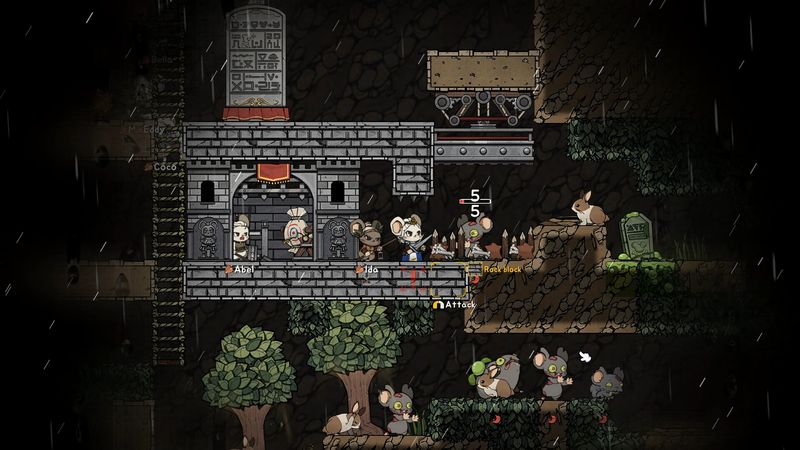
In the grand tapestry of survival sims and city builders, Ratopia finds a modest niche. It is a title that invites analysis, debate, and yes, a bit of good-natured roasting. From the pixelated trenches of my latest simulation misadventure, I urge you to give Ratopia a try. Just remember: sometimes, even the cutest colonies have a few rough corners.

